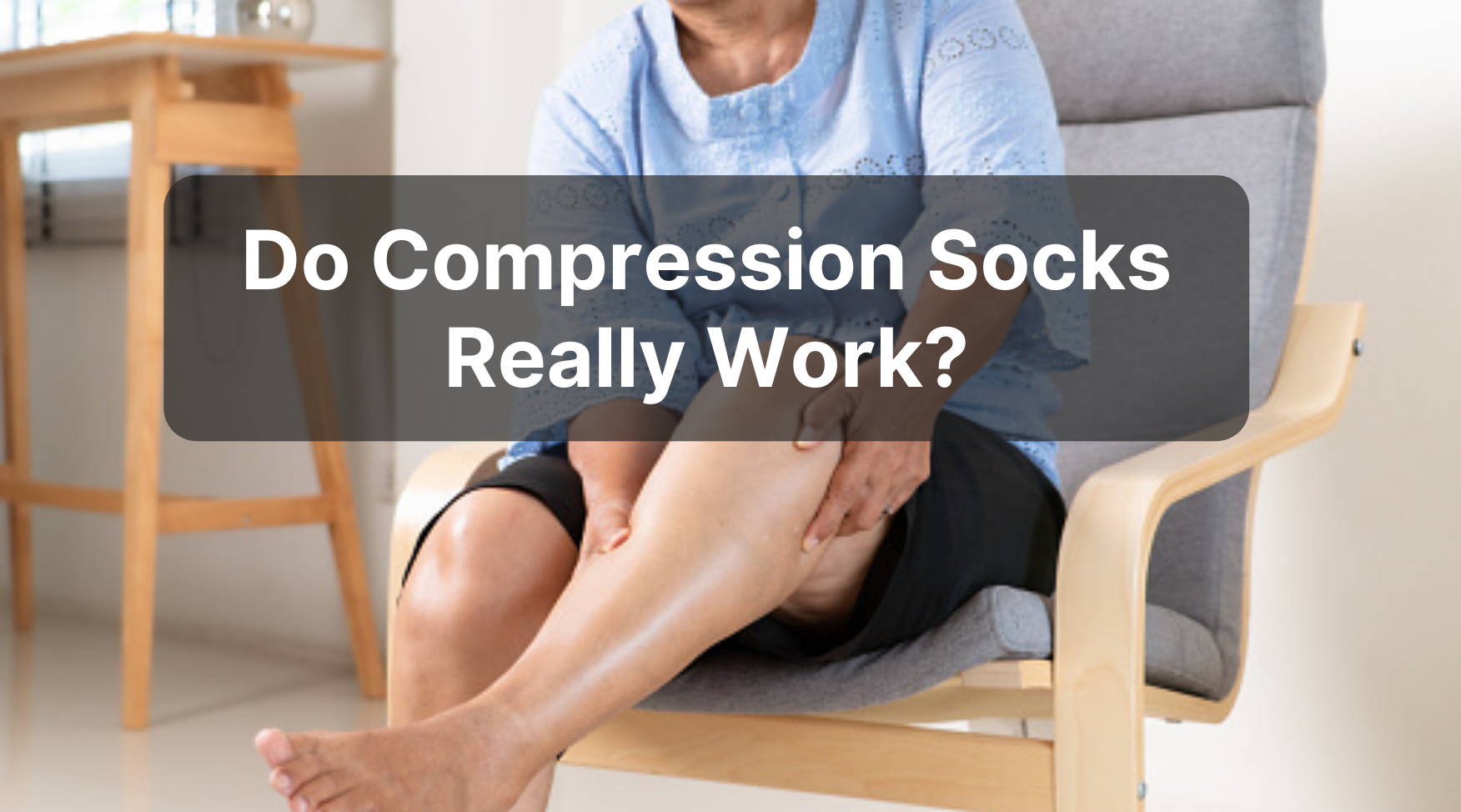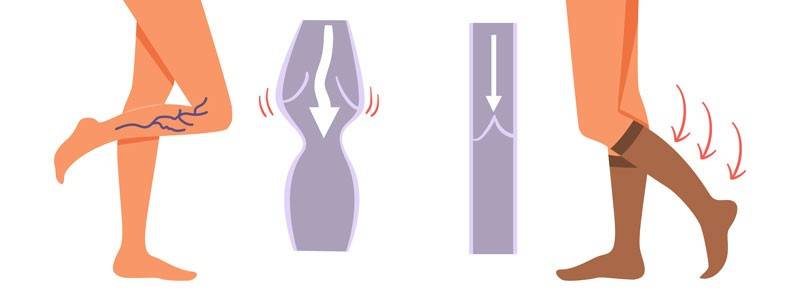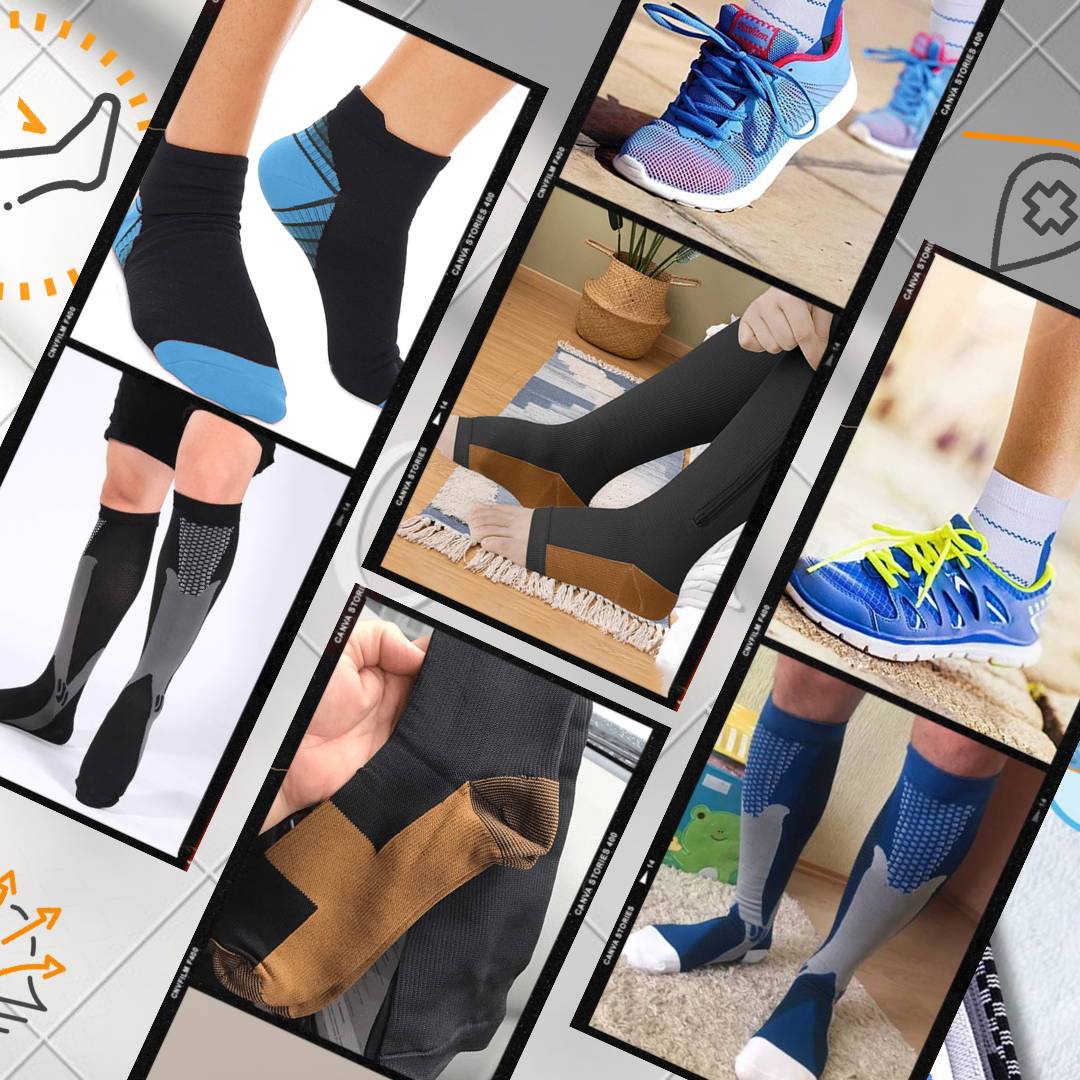
Do Compression Socks Really Work?
Share

Do Compression Socks Really Work?
If you're like most people, you've had your share of aches and pains, and no doubt, many of them were in your legs and feet. Compression socks have been used for decades to treat conditions of the legs and feet, including poor circulation and varicose veins, swelling of the feet and legs, and general aches and pains. You may wonder if it's possible that compression socks can really make a noticeable difference for individuals with these conditions. We're here to tell you that both the anecdotal and scientific evidence shows that compression socks really can help! We've gathered all the must have information on compression socks and how they might help you.
WHAT ARE COMPRESSION SOCKS?
Compression stockings for women and men (the terms sock and stocking are often used interchangeably) are stretchy socks that snugly hug the foot and lower leg. They're available in a variety of styles and lengths, such as knee high compression socks, crew socks and stockings.

HOW DO COMPRESSION SOCKS WORK?
Compression socks work by applying steady pressure on the veins, which helps to keep them open, and prevent blood and other liquids (such as lymph or water) from pooling in the veins and tissues of the lower legs. Veins in the legs can stretch over time, and the valves that help to control the flow of blood and push it upward toward the heart can become faulty.
COMPRESSION SOCKS PROVIDE RELIEF FOR MANY CONDITIONS
While compression socks may be recommended for individuals with specific medical conditions such as diabetes, vein diseases, or those who are post-surgery, the fact is that just about everyone can benefit from wearing compression socks! They are often worn by athletes to improve performance by cutting back on swelling, pain and soreness. Efficient blood and lymph circulation can increase muscular endurance, and decrease the amount of recovery time after intense workouts.
Compression socks can also be used to n or treat varicose and spider veins by helping to gently open veins and push blood flow upward. Improved blood flow from wearing them can even prevent potentially deadly blood clots from forming in the legs. Compression socks for swelling can be worn by people who are suffering specifically from edema, or leg/ankle/foot swelling, but are also beneficial for those who work jobs where they are frequently on their feet. If you've ever worked retail or food service, you know how achy and swollen your feet can get!
Doctors may also recommend compression socks or stockings for pregnant women; they can help relieve many irritating late-pregnancy discomforts, such as swollen feet, decreased blood flow to the legs, varicose veins, and aching legs.
CHOOSING COMPRESSION SOCKS
Gone are the days when the only choices for compression stockings were ugly, thick black socks. Compression stockings and socks for both men and women are available in just about every style, size, and color under the rainbow. The amount of pressure (or compression) in the socks is measured in mmHG - the higher the number, the more compressive the stocking. In general, graduated compression socks should work for most people, and it's important to remember that the fit should be very snug, but never painfully tight.

Live your life pain-free with compression socks.
Sometimes they are even 50% OFF.
